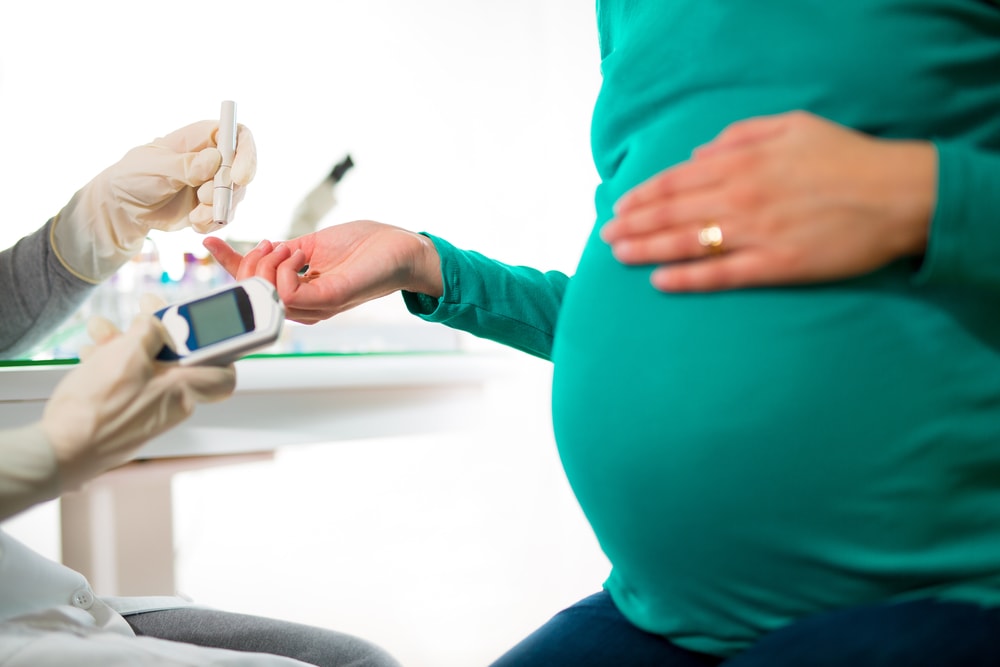Learn all you can about Pregnancy and Diabetes Type 1
Whether there is a pre-existing diagnosis of diabetes or not, there are innumerable variables at play during pregnancy. The reality for women balancing pregnancy and Diabetes Type I is that it will be challenging but not impossible. Many women faced with pregnancy and diabetes 1, have given birth to normal, healthy babies and can attest to the exigencies inherent in both sides of this experience. Experts also suggest that proper pre-conception health care help to mitigate the risks and optimize the chances of keeping the expectant mother and the fetus healthy throughout the pregnancy.
The biggest issues that typically occur when the pregnancy is unplanned and there has been a lax in management of the diabetic condition. The effects of pregnancy can cause a drastic change in eating patterns that increase insulin dose requirements especially during the gestation period (first 18-28 weeks). As such, it is important to maintain tight controls on glucose level especially in cases where pregnancy is desired, expected and possible. Proper diabetes management can mitigate conditions such as:
- Lower renal threshold for glycosuria (release of glucose into the urine)
- Heightened risk of hypoglycemia
- Deterioration in retinopathy, and
- Worsening of established nephropathy (Kidney damage)
Equally concerning with pregnancy and diabetes type I are the potential effects on the baby. During the first eight weeks of pregnancy when the formation of major organs such as the brain, heart and kidneys are beginning, uncontrolled glucose levels can increase the chance of brain, heart and kidney defects. This can also increase the chance of a premature birth, breathing problems, hypoglycemia and birth weight anomalies.
Type 1 Diabetes and Pregnancy Symptoms
Type 1 Diabetes is recognized as one of the most common medical conditions that can cause complications for both the mother and baby during pregnancy. It may be helpful to understand Type 1 Diabetes and pregnancy symptoms whether you had a pre-existing diagnosis or were diagnosed with this condition during pregnancy.
Type 1 Diabetes and pregnancy symptoms in some cases can overlap. For instance,
- Frequent urination can be a sign of diabetes as well as early pregnancy that continue through the third trimester. The need to pee typically increases in pregnancy because of extra blood and fluid use that is being excreted through the kidneys. The progressive growth of the baby can also put pressure on the bladder increasing the demand to pee more often. Diabetes in pregnancy risks to baby are definitely risks you want to avoid at all costs.
On the other hand, increased urination as a symptom of diabetes occurs when excess sugar (glucose) builds up in the blood stream and force the kidneys to work overtime.
- Fatigue rank high as a symptom of both diabetes and pregnancy. Dehydration from increased urination and your body’s inability to utilize sugar for energy contributes to diabetic fatigue. Soaring hormone progesterone during pregnancy is typically the reason attributed to pregnancy related fatigue.
- Weight loss, according to Mayo Clinic experts, can occur as a symptom of diabetes as well as pregnancy. Although most women are surprised when they begin losing weight in the first trimester, it is not atypical to the condition. The variables that cause weight loss during pregnancy may include nausea and vomiting caused by morning sickness (hyperemesis gravidarum), a shift in dietary habits or the loss of interest in certain foods.
Weight loss as a symptom of diabetes occurs as a result of losing sugar and calories through frequent urination. Particularly with Type 1 Diabetes, cellular sugar deprivation that drive a state of constant hunger is recognized as a major contributor to rapid weight loss.
No matter what type of diabetes you have, there are many steps you and your health care team can take before and during pregnancy to minimize any harmful effects. Seeking the help of an obstetrician with experience treating women with diabetes, developing a pre-pregnancy and beyond diabetic management plan that includes close monitoring of glucose levels, a healthy meal plan and staying physically active are just some of the ways to ensure a healthy pregnancy with diabetes Type 1.
The most important goal is to provide the best physical and psychological environment for both baby and mother to thrive. And while it is essential to work closely with a health care team, the expectant mother is ultimately the most important member on this team.
Sources:
- https://www.ncbi.nlm.nih.gov/pmc/articles/PMC1847857/
- http://www.mayoclinic.org/healthy-lifestyle/getting-pregnant/in-depth/symptoms-of-pregnancy/art-20043853?pg=2
- http://americanpregnancy.org/pregnancy-complications/diabetes-during-pregnancy/
- https://www.niddk.nih.gov/health-information/diabetes/diabetes-pregnancy
